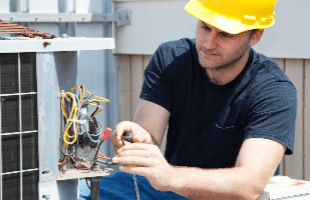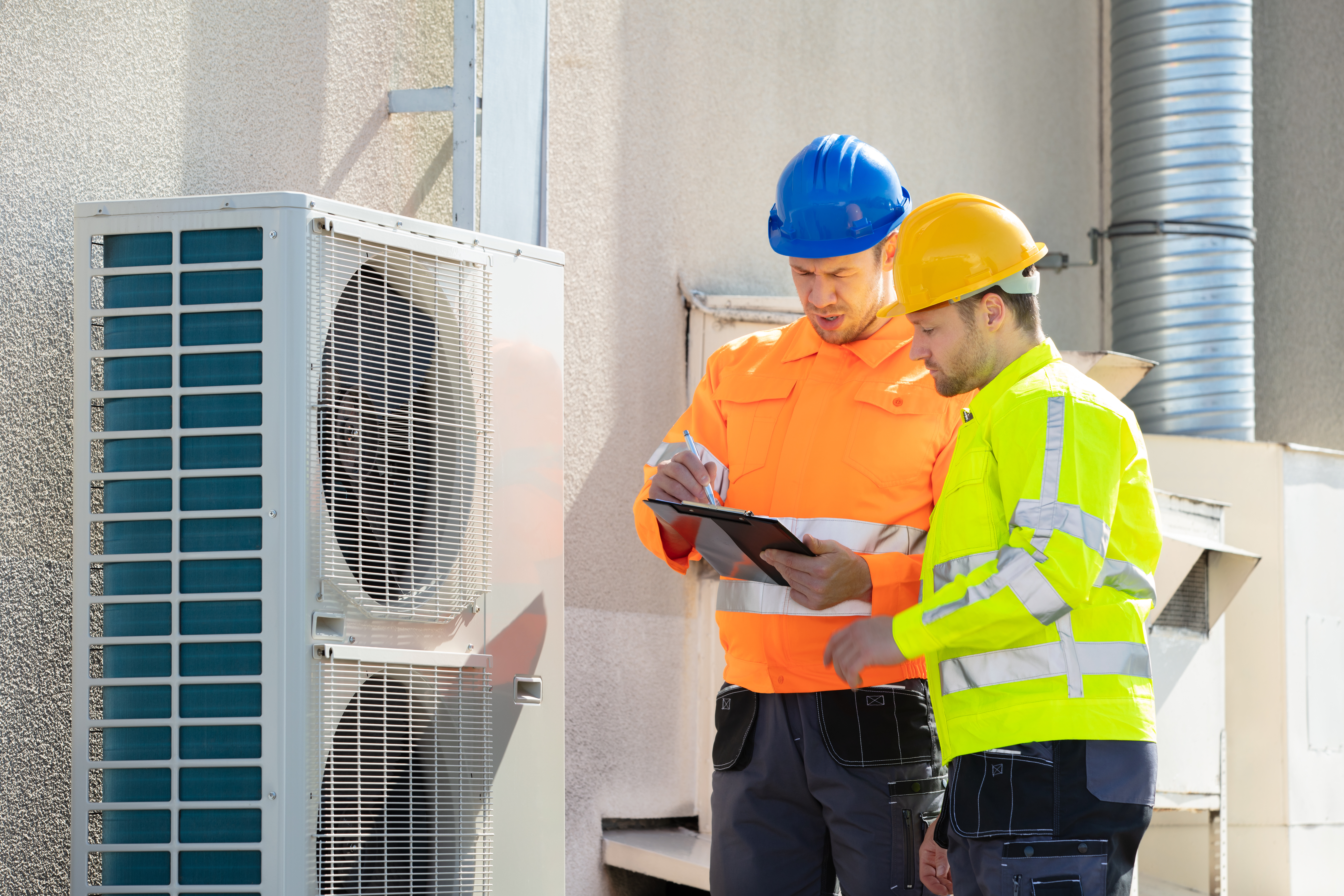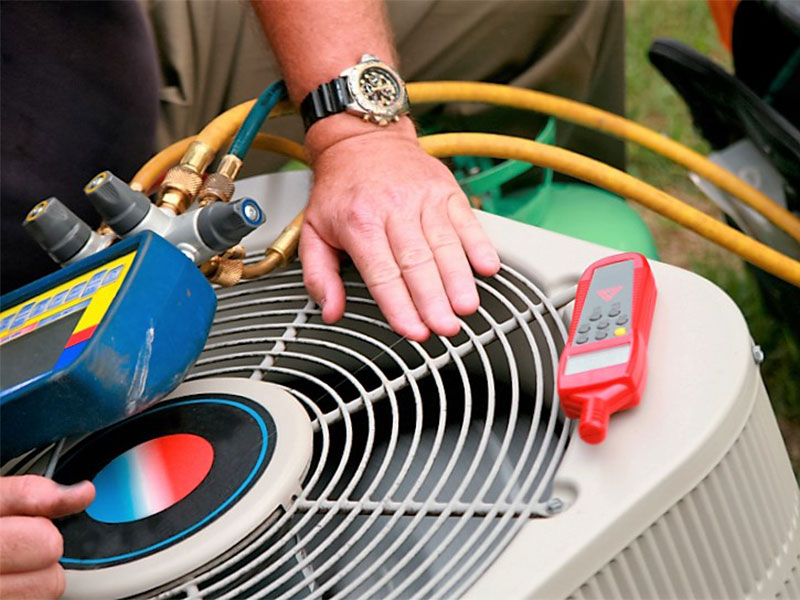Heat Pump Services Canoga Park Heating Air Conditioning Contractor

HVAC techniques encompass a broad range of capabilities beyond merely cooling. They incorporate heating systems, which may embrace furnaces or heat pumps to take care of heat during colder months. Ventilation is one other critical side, liable for exchanging or replacing air in an area to keep up air quality and take away moisture, odors, and pollutants. This complete approach to indoor climate control contrasts sharply with air conditioning, which solely addresses temperature regulation.
Air conditioning methods are typically designed to chill an area by removing heat from the indoor air. These techniques function by circulating refrigerant by way of a series of coils, absorbing heat from the air inside a building and releasing it outdoors. This course of not only lowers the temperature however can also scale back humidity ranges, creating a more comfy environment. However, air conditioning fails to provide heating or air flow, which are essential for year-round climate control.
The differences in complexity between HVAC and air conditioning techniques are significant. An HVAC system is more advanced and includes multiple components working collectively. In addition to air conditioning items, HVAC methods generally comprise components like ductwork, thermostats, and various controls. These components work in concord to ensure that a building stays comfy across varying weather situations.
Indoor Air Quality Canoga Park Plumbing & HVAC Contractors
Maintenance necessities also differ between HVAC methods and standalone air conditioning techniques. Regular maintenance of HVAC systems includes checking all components, from the furnace and air conditioner to air flow ducts. Ensuring that these components operate appropriately is essential for overall system efficiency and longevity. In contrast, sustaining an air conditioning unit primarily involves cleaning or replacing filters, checking refrigerant ranges, and making certain that the condenser is clean. While air conditioning items require care, the scope is narrower than that of comprehensive HVAC techniques.
Energy efficiency is another key area the place distinctions come up. Modern HVAC systems are designed to maximize vitality efficiency and will embrace features similar to programmable thermostats and variable pace followers. These features help scale back energy consumption, which can be significantly beneficial in regions with excessive temperatures. Air conditioning items even have power efficiency rankings, but they lack the holistic features that an HVAC system offers, in the end impacting total energy use in a constructing.

In terms of system varieties, HVAC can incorporate several designs. These may More hints embody central methods, break up techniques, and packaged techniques, every helpful in numerous purposes relying on the scale and structure of the constructing. In distinction, air conditioning techniques are primarily outlined by sorts corresponding to window items, transportable units, split systems, and central air conditioning, read which mainly serve the cooling operate.
HVAC Maintenance Canoga Park HVAC Contractors
The initial installation costs can also range significantly between HVAC and air conditioning systems. A full HVAC system typically requires a better upfront investment because of its complexity and vary of features. However, the long-term savings on vitality bills and maintenance can justify this funding. Air conditioning units, while usually inexpensive, may not present the identical degree of efficiency and luxury advantages over time.
Climate impact concerns play a task in the dialogue between HVAC and air conditioning systems. HVAC methods can improve air circulation and ventilation, which is significant for sustaining healthy indoor air quality. Proper ventilation removes indoor pollution and moisture, reducing the chance of health points related to poor air quality. Air conditioning techniques alone do not handle these issues and primarily concentrate on cooling, which can lead to stagnant indoor air if not paired with sufficient ventilation options.
Duct Cleaning Canoga Park HVAC Contractor & HVAC Tune-ups
Installation professionals sometimes require specialized coaching in HVAC because of its complexity. This coaching encompasses various aspects of heating, cooling, air flow, and the interrelationship between these functions. Successful installation of an HVAC system calls for a deeper understanding of how these components work together to create a comfortable indoor setting. In distinction, air conditioning specialists may focus solely on cooling techniques, limiting their scope of expertise.
In summary, recognizing the variations between HVAC and air conditioning can guide decision-making when it comes to choosing techniques for house or commercial areas. HVAC systems supply complete control over the indoor environment by delivering heating, cooling, and air flow solutions. HVAC Troubleshooting Guide Canoga Park. Air conditioning, while crucial for cooling, represents only one aspect of indoor climate control. Investing in an HVAC system can lead to more practical temperature regulation, improved air quality, and energy savings over time.
HVAC Upgrades Canoga Park HVAC Installation & Replacement
Ultimately, understanding these distinctions can result in knowledgeable choices about climate control systems. Whether you lean towards a full HVAC setup for year-round comfort or a much less complicated air conditioning resolution for immediate relief from the heat, being informed empowers effective decision-making that meets both consolation and budgetary wants.
- HVAC (Heating, Ventilation, and Air Conditioning) encompasses a broader spectrum of climate control, whereas air conditioning focuses solely on cooling indoor areas.
- HVAC systems embrace heating components like furnaces or heat pumps, guaranteeing consolation throughout colder months along with cooling.
- Ventilation is a key aspect of HVAC, facilitating fresh air circulation and improving indoor air quality, which air conditioning does not address directly.
- Energy efficiency standards may differ; HVAC systems often goal for a balanced approach to power use throughout heating and cooling, whereas air conditioners primarily give attention to cooling efficiency.
- HVAC techniques can include dehumidifiers and air filtration technologies, enhancing indoor comfort by controlling moisture and allergens, features typically absent in standard air conditioning items.
- The installation and maintenance necessities for HVAC techniques are typically more complex, necessitating specialised data and repair compared to typical air conditioning models.
- HVAC solutions may use zoned systems for focused temperature control in different areas, whereas air conditioning units usually cool whole areas uniformly.
- Cost implications differ, as HVAC methods incorporate multiple functionalities and can be more expensive initially, whereas fundamental air conditioning models may be extra budget-friendly.
- The operational framework differs: HVAC methods often work through a community of ducts for airflow, whereas many air conditioning models operate by way of standalone setups or window placements.
- Regulations and licensing for HVAC professionals usually require more extensive training as a outcome of system's intricacies, whereas air conditioning technicians might have less stringent requirements.
What is the first difference between HVAC and air conditioning?
Thermostat Installation Canoga Park Experienced HVAC Contractor
HVAC stands for Heating, Ventilation, and Air Conditioning, whereas air conditioning refers particularly to cooling an area. HVAC methods supply comprehensive climate control, including heating and air flow.
Why is HVAC thought of more complicated than air conditioning?
HVAC systems combine multiple functions—heating, cooling, and ventilation—requiring a network of interconnected components, making it more complex than standard air conditioning units that solely handle cooling.
Refrigeration Services Canoga Park How To Find The Best HVAC Services Near You
Can a home have air conditioning without an HVAC system?

How do HVAC techniques enhance indoor air quality?
HVAC System Replacement Canoga Park HVAC Contractor Services
HVAC systems embody filtration and air flow features that help take away pollution, control humidity, and circulate fresh air, thereby bettering indoor air quality extra successfully than air conditioning items alone.
Are HVAC systems more energy-efficient than air conditioning units?
Generally, HVAC methods can be more energy-efficient as they are designed to manage all elements of climate control. However, efficiency is decided by the specific models and applied sciences used.
Can I substitute my air conditioning unit with an HVAC system easily?
HVAC Regulations Canoga Park Heating & Cooling - HVAC Services
Replacing an air conditioning unit with an HVAC system requires careful planning and should contain additional installation costs, as you need to combine heating and air flow components into your present house.
HVAC techniques usually require extra intensive maintenance, together with checking numerous components like thermostats and ductwork. In contrast, air conditioning units usually want simpler maintenance, like filter adjustments.
Energy Efficiency HVAC Canoga Park HVAC Contractor Services
How do I resolve if I want HVAC or simply air conditioning?
(MERV Filters Canoga Park)

Are there any price differences between HVAC and air conditioning systems?
Smart HVAC Systems Canoga Park Commercial HVAC Contractor
Yes, HVAC techniques usually come with larger upfront installation prices and ongoing maintenance fees, whereas air conditioning models tend to be extra reasonably priced but could incur greater operating prices if used extensively. Furnace Repair Canoga Park.